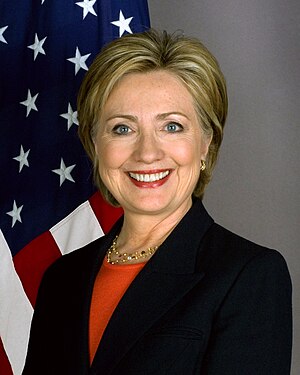 |
| Image via Wikipedia |
THE HAGUE, Netherlands – The European Union should help teach bloggers living under oppressive regimes how to communicate freely and avoid detection, and develop technology to help them, the bloc's digital affairs commissioner said Friday.
Speaking at an online free speech conference, Neelie Kroes said digital dissidents need tools that are "simple and ready-made."
"I want the EU to help develop and distribute these tools," she said.
Governments, companies and civil liberties groups are meeting at the Freedom Online conference at the Dutch Foreign Ministry in hopes of creating a coalition of like-minded groups to promote Internet freedoms.
Bloggers and users of social networks played a key role in fomenting the revolutions of the "Arab Spring" — and took great risks.
In an emotional speech, Syrian blogger Amjad Baiazy said his country's surveillance system was built by Western companies. He said he was arrested and tortured in May for expressing his opinion online, and a friend was arrested as recently as this week for a Facebook posting. He called on governments to fight for "security of citizens, not corporations or governments."
On Thursday U.S. Secretary of State Hillary Clinton opened the conference with a call for companies not to sell surveillance tools to authoritarian regimes.
Dutch member of parliament Marietje Schaake echoed Clinton's call, saying that companies "with a reputation to lose" — such as Google, one of the conference's sponsors — are more likely to heed it.
However, she said less well-known companies may need incentives or laws to restrain them.
She said it was ironic there is also conference being held this week in Kuala Lumpur, Malaysia, aimed at disseminating advanced surveillance techniques.
"We need to get ahead of the curve," she said. "Some governments curb freedom before the Internet fully arrives there."
Schaake also slammed the U.S. for its proposed "Stop Online Piracy Act," which would require U.S. telecommunications companies to block access to foreign-based websites that infringe U.S. copyrights.
This will "give great incentives to governments like China to do the same," she said, blocking political speech they don't approve and arguing that their censorship practices are no different than those in the West.
Karen Reilly of the TOR project, which helps Internet users browse the web anonymously, said governments should listen less to the copyright lobby. She said her organization could use assistance in answering technical questions in local languages, noting that addition of a Persian service had opened up a flood of communication from Iran.
Among concrete actions taken Friday, the Dutch government pledged euro1 million ($1.3 million) to develop "mesh" networks — networks that use mobile phones to create a backup system to disseminate information when a government tries to block the Internet or social networks. He named Syria, Iran and Zimbabwe as target countries.
Acknowledgements: Associated Press
Speaking at an online free speech conference, Neelie Kroes said digital dissidents need tools that are "simple and ready-made."
"I want the EU to help develop and distribute these tools," she said.
Governments, companies and civil liberties groups are meeting at the Freedom Online conference at the Dutch Foreign Ministry in hopes of creating a coalition of like-minded groups to promote Internet freedoms.
Bloggers and users of social networks played a key role in fomenting the revolutions of the "Arab Spring" — and took great risks.
In an emotional speech, Syrian blogger Amjad Baiazy said his country's surveillance system was built by Western companies. He said he was arrested and tortured in May for expressing his opinion online, and a friend was arrested as recently as this week for a Facebook posting. He called on governments to fight for "security of citizens, not corporations or governments."
On Thursday U.S. Secretary of State Hillary Clinton opened the conference with a call for companies not to sell surveillance tools to authoritarian regimes.
Dutch member of parliament Marietje Schaake echoed Clinton's call, saying that companies "with a reputation to lose" — such as Google, one of the conference's sponsors — are more likely to heed it.
However, she said less well-known companies may need incentives or laws to restrain them.
She said it was ironic there is also conference being held this week in Kuala Lumpur, Malaysia, aimed at disseminating advanced surveillance techniques.
"We need to get ahead of the curve," she said. "Some governments curb freedom before the Internet fully arrives there."
Schaake also slammed the U.S. for its proposed "Stop Online Piracy Act," which would require U.S. telecommunications companies to block access to foreign-based websites that infringe U.S. copyrights.
This will "give great incentives to governments like China to do the same," she said, blocking political speech they don't approve and arguing that their censorship practices are no different than those in the West.
Karen Reilly of the TOR project, which helps Internet users browse the web anonymously, said governments should listen less to the copyright lobby. She said her organization could use assistance in answering technical questions in local languages, noting that addition of a Persian service had opened up a flood of communication from Iran.
Among concrete actions taken Friday, the Dutch government pledged euro1 million ($1.3 million) to develop "mesh" networks — networks that use mobile phones to create a backup system to disseminate information when a government tries to block the Internet or social networks. He named Syria, Iran and Zimbabwe as target countries.
Acknowledgements: Associated Press


No comments:
Post a Comment